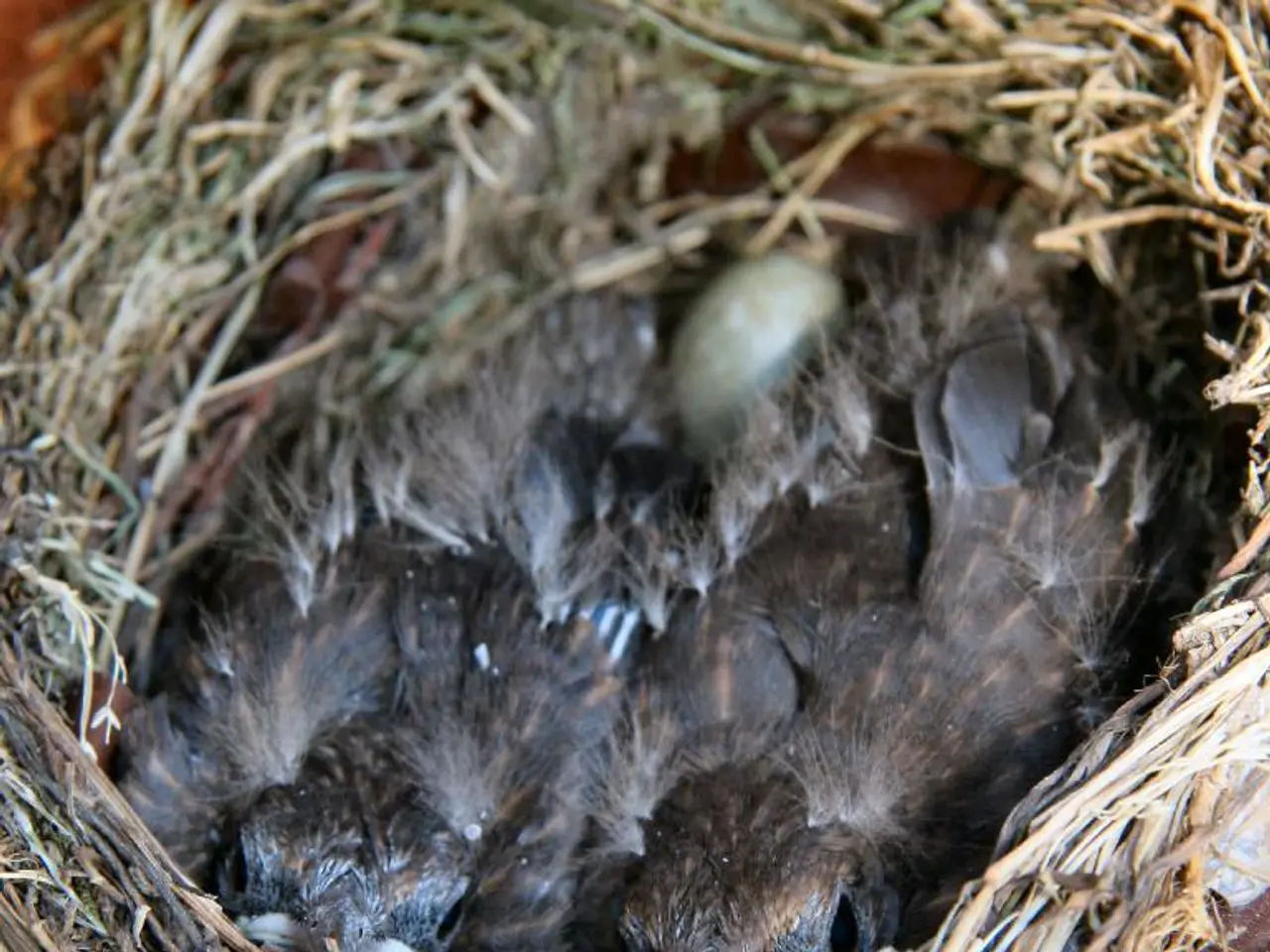Pregnancy-induced Nesting Tendencies
Preparing for Baby: Embracing the Nesting Instinct
As the due date approaches, many expectant parents may find themselves experiencing a strong urge to prepare their home for the arrival of their new bundle of joy. This phenomenon, known as the nesting instinct, is a natural response to hormonal changes during pregnancy.
The nesting instinct is primarily caused by the rise and fall of hormones such as estrogen, progesterone, prolactin, and oxytocin. These hormones not only prepare the body physically for childbirth and breastfeeding but also induce brain changes that promote maternal behaviors, including the strong urge to prepare the home for the baby.
To make the most of the nesting instinct while avoiding harmful cleaning products, consider these strategies:
- Use natural cleaning alternatives such as vinegar, baking soda, lemon juice, and castile soap, which are effective and safe during pregnancy.
- Opt for fragrance-free and non-toxic products labeled safe for pregnancy or certified green.
- When cleaning, wear gloves and ensure good ventilation to minimize inhalation of fumes.
- Focus nesting energy on organizing, decluttering, and preparing the nursery, which can be done without heavy chemical exposure.
- Incorporate gentle, natural tasks like washing baby clothes with gentle detergents or setting up baby gear.
- Avoid bleach, ammonia, and harsh disinfectants linked with respiratory irritation and risks during pregnancy.
During this period, it's essential to tackle practical tasks that will make life easier once the baby arrives. This may include getting your hospital bag packed, setting up your baby's sleeping space with a firm mattress and a tight-fitting crib sheet, and preparing meals that can be frozen and heated later, especially if you're breastfeeding.
If you're planning to wear nursing tops or bras, now is a good time to wash those. Additionally, consider doing the laundry, preparing clothes for postpartum recovery, and getting caught up on other laundry.
Remember, the nesting instinct does not predict what kind of parent you'll be. It's simply a way to deal with pre-baby jitters or stress. If you're not feeling the nesting urge, don't worry—it's not a requirement for a successful parenting journey.
Moreover, it's important to remember that the nesting instinct can vary from person to person and even from pregnancy to pregnancy in the same person. It may occur a few weeks before the baby's arrival, but it can also start earlier or later.
Lastly, don't forget to ask for help from your loved ones to get your nest ready together. Check with your local firehouse for car seat checks or search for a child passenger safety technician to ensure your baby's car seat is installed correctly. Install your baby's car seat in your vehicle and take this opportunity to familiarize yourself with its features.
Embracing the nesting instinct can be a positive experience if balanced with caution about chemical exposures through choosing safer cleaning methods. By following these tips, you can create a safe and welcoming environment for your new arrival.
[1] Goldschmidt, W. (2018). Pregnancy and Childbirth: A Complete Guide for Dads. Da Capo Lifelong Books. [3] Hale, T. W. (2016). Medications and Mothers' Milk. Elsevier Health Sciences.
- Preparing a safe and health-and-wellness focused environment is crucial as the nesting instinct promotes the need to prepare the home for the baby's arrival.
- To ensure the nursery is eco-friendly and non-toxic, utilize natural cleaning alternatives and opt for fragrance-free, pregnancy-safe products.
- Incorporating family-health and women's-health considerations, such as gentle laundry practices and preparing meals for breastfeeding, can contribute to a smoother transition to parenthood.




